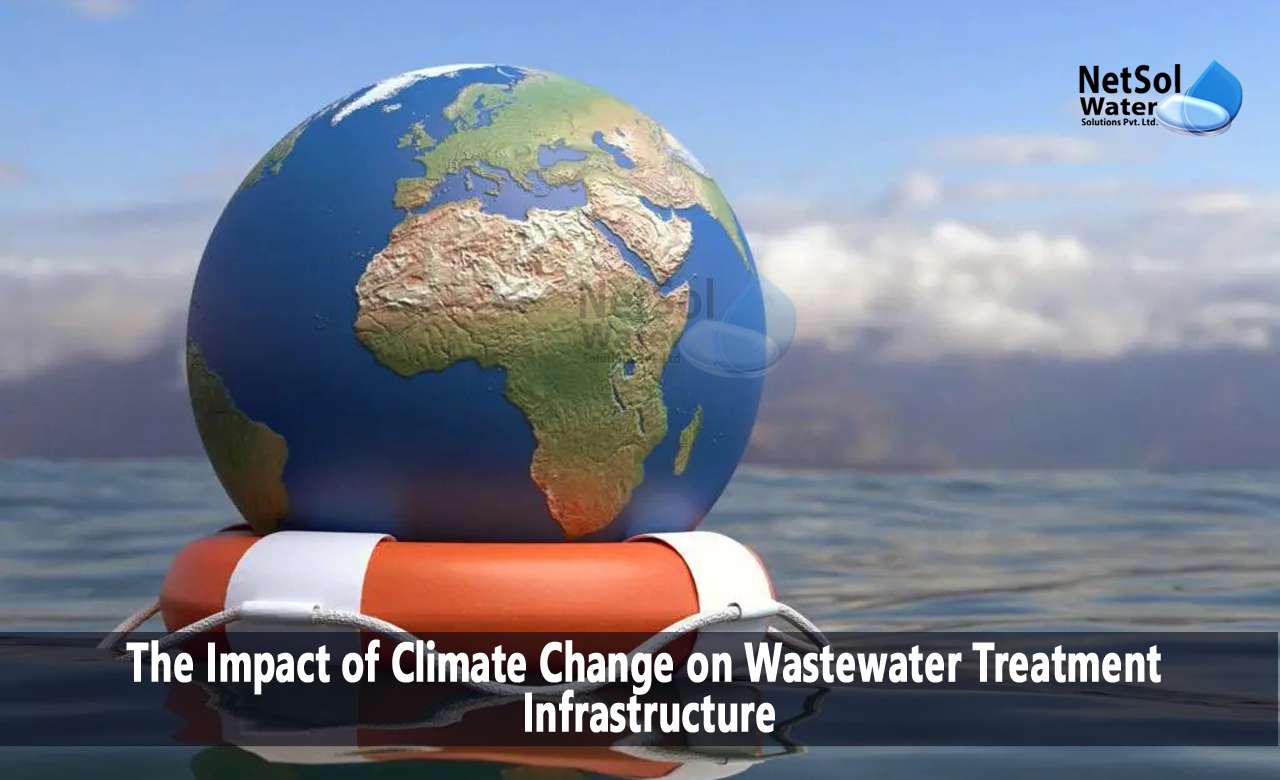The Impact of Climate Change on Wastewater Treatment Infrastructure
One of the most important issues of our day is climate change, which has far-reaching effects on areas that are frequently disregarded, including the infrastructure used for wastewater treatment. This blog examines the impact of climate change on wastewater treatment facilities and the creative solutions being created to address these issues.
Increased Flooding
The more frequent and severe flooding is one of the most direct effects of climate change on wastewater treatment systems. Untreated wastewater may leak into the environment as a result of overloaded sewage systems brought on by extreme weather events like hurricanes and torrential rains. This not only pollutes water supplies but also presents a serious risk to public health.
Wastewater treatment facilities in high-risk locations are implementing climate-resilient infrastructure, such as raised platforms, flood barriers, and enhanced stormwater control, to tackle this issue. These modifications safeguard the environment and the general public's health by preventing sewage overflows.
Altered Precipitation Patterns
Changes in precipitation patterns brought about by climate change are making droughts more frequent and severe in certain areas while increasing rainfall in others. The quality and availability of water resources, which are essential to wastewater treatment plants' operations, are impacted by these changes. Water scarcity in drought-prone places can put stress on treatment systems, while there might be too much water in areas with higher rainfall to handle.
Wastewater treatment plants are investing in water recycling and reuse systems to counteract the effects of changed precipitation patterns. This guarantees a steady supply of water even in dry spells and lessens their reliance on freshwater resources. In locations with sufficient rainfall, water conservation techniques are also being developed to minimise the creation of wastewater.
Temperature Extremes
Temperature extremes are another result of climate change, with rising global temperatures having an impact on the efficacy and efficiency of wastewater treatment systems. Elevated temperatures have the potential to encourage the growth of detrimental bacteria and algae in wastewater, which could result in the discharge of improperly treated effluents. Furthermore, higher temperatures have the potential to decrease biological therapy processes' efficacy.
Wastewater treatment facilities are implementing energy-efficient technology and strengthening the thermal resilience of their operations to solve temperature-related issues. To maintain steady treatment conditions, several facilities are putting in place temperature-control measures including cooling systems and shade structures. Furthermore, novel biological therapies that can tolerate a wide variety of temperatures are being created.
Ocean Acidification
Ocean acidification, which is caused by rising atmospheric carbon dioxide levels, might affect wastewater treatment infrastructure indirectly, albeit less directly. The release of treated wastewater into the oceans may be impacted by the acidity of coastal waterways. The pH of the receiving waters may alter as seawater becomes more acidic, which could have an impact on how well effluents are diluted and dispersed.
Wastewater treatment facilities along the coast are keeping an eye on ocean acidification and modifying their treatment procedures to take possible pH fluctuations into consideration in order to adjust to these changes. By taking a proactive stance, discharged effluents are guaranteed to comply with environmental requirements and to not affect marine habitats.
Emerging Contaminants
Both previously unknown infections and new pollutants, like pharmaceuticals and personal care items, may appear in wastewater as a result of climate change. Conventional wastewater treatment techniques may not be able to adequately remove or degrade these newly developing pollutants.
Wastewater treatment facilities are investigating sophisticated treatment techniques, such as activated carbon filtration and UV and ozone disinfection, to solve this problem. When it comes to guaranteeing the safety of treated wastewater and eliminating new contaminants, these solutions work better.
Conclusion:
Climate change's effects on wastewater treatment facilities raise serious concerns for the environment and human health. Wastewater treatment plants must innovate and adapt as the consequences of climate change worsen in order to face these issues head-on. Wastewater treatment facilities can make sure that they continue to offer safe and efficient water treatment services in the face of a changing climate by making investments in resilient infrastructure, putting in place systems for recycling and reusing water, modifying treatment procedures, and maintaining a close eye on newly discovered contaminants.
To further lessen the long-term effects of climate change and cut greenhouse gas emissions, collaboration between governments, communities, and businesses is crucial. The synergy between adaptation and mitigation efforts is key to building a sustainable future for wastewater treatment infrastructure and, ultimately, theplanet as a whole.
Netsol Water is Greater Noida-based leading water & wastewater treatment plant manufacturer. We are industry's most demanding company based on client review and work quality. We are known as best commercial RO plant manufacturers, industrial RO plant manufacturer, sewage treatment plant manufacturer, Water Softener Plant Manufacturers and effluent treatment plant manufacturers. Apart from this 24x7 customer support is our USP. Call on +91-9650608473, or write us at enquiry@netsolwater.com for any support, inquiry or product-purchase related query.



